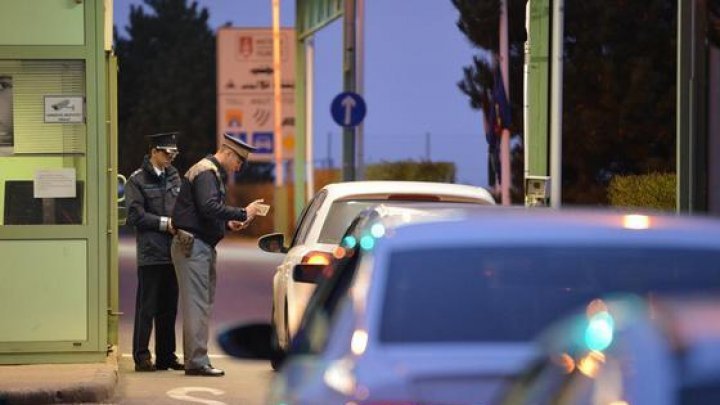ATTENTION at crossing border to Romania! No meat product is allowed. Waiting time and rows increase
 foto: interactiv.ro
foto: interactiv.ro
All the food that Moldovan or Ukrainian citizens bring are confiscated at the border crossings with Romania in order to avoid the spread of African swine fever, the products being destroyed under the eyes of the owners.
If until now the control was carried out only at the crossing points in the northern area, now and at the Albiţa - Leuseni crossing point, all the cars are thoroughly checked. Any meat product is immediately destroyed, and customs officers make verbal processes.
For these reasons, queues are formed and waiting time increases.
Previously, the Deputy Director of the Sanitary Veterinary and Food Safety Division (DSVSA) Botosani, Ovidiu Airimitowie, the activity carried out by the institution at the border crossing points respects a decision given by the National Emergency Situation Council, which requested the introduction of disinfection at points of entry into the country.
"We ensure permanence for a period of time at the entry points in the country. We know that the virus is very resistant, we also have the experience from Satu Mare where we know that the virus has entered the country through products of animal origin, products traditionally prepared in Hungary. All food is confiscated, damaged in the presence of the owner, sprinkled with chlorine and then stored in a refrigerator until incineration. The people entering our country are warned not to bring food, we have distributed leaflets, we have posters before entering the border," said DSVSA Botosani, Ovidiu Airimiţoaie, director of the DSVSA Botosani.
If until now the control was carried out only at the crossing points in the northern area, now and at the Albiţa - Leuseni crossing point, all the cars are thoroughly checked. Any meat product is immediately destroyed, and customs officers make verbal processes.
For these reasons, queues are formed and waiting time increases.
Previously, the Deputy Director of the Sanitary Veterinary and Food Safety Division (DSVSA) Botosani, Ovidiu Airimitowie, the activity carried out by the institution at the border crossing points respects a decision given by the National Emergency Situation Council, which requested the introduction of disinfection at points of entry into the country.
"We ensure permanence for a period of time at the entry points in the country. We know that the virus is very resistant, we also have the experience from Satu Mare where we know that the virus has entered the country through products of animal origin, products traditionally prepared in Hungary. All food is confiscated, damaged in the presence of the owner, sprinkled with chlorine and then stored in a refrigerator until incineration. The people entering our country are warned not to bring food, we have distributed leaflets, we have posters before entering the border," said DSVSA Botosani, Ovidiu Airimiţoaie, director of the DSVSA Botosani.